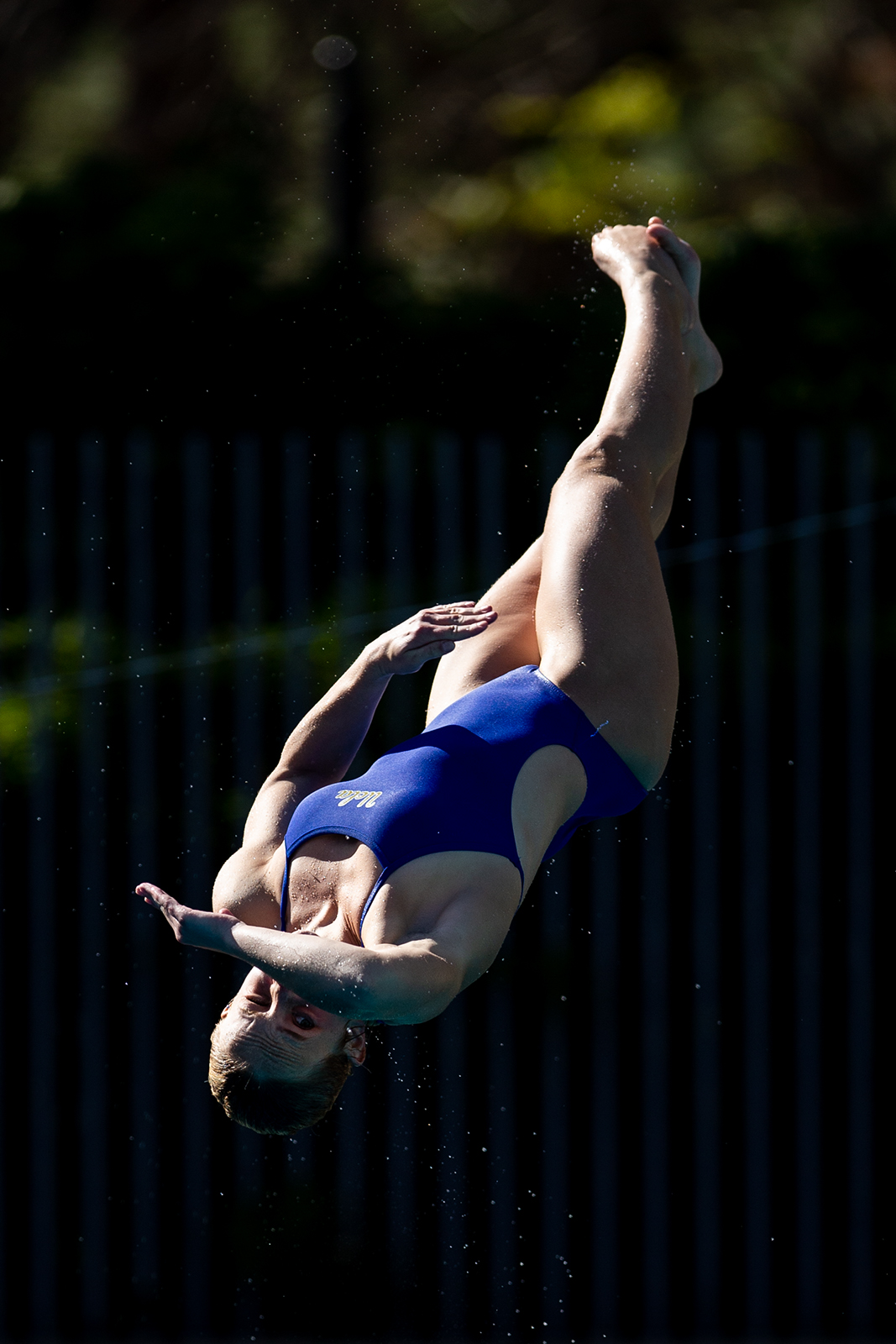Coral’s Quarrels: Diving deserves its own platform separate from swimming in the NCAA

UCLA swim and dive finished 17th in the 2019 NCAA championship, but the 75 points accumulated by the team’s divers was the highest of all the competing schools at the meet. (Andy Bao/Daily Bruin)

By Coral Smith
Feb. 12, 2020 1:11 a.m.
If the circumstances had been slightly different, the Bruins might have come home last season with championship No. 119.
UCLA swim and dive scored 75 points during the 2019 NCAA championships, putting the Bruins in 17th place by the end of the meet. But while the eventual champion Stanford scored 456.5 points, just 19 came from the divers on their squad. On the other hand, all 75 of UCLA’s points came from its two qualifying divers, then-redshirt senior Maria Polyakova and then-senior Eloise Belanger – the former of which also won an individual championship in the 3-meter springboard.
In fact, that point total was the highest amount of points accumulated by any of the diving programs present, which means that if diving was considered to be a separate sport from swimming, UCLA could have won a team championship in the sport last season.
Schools such as Stanford, California and Georgia have dominated the swimming side of the sport for the last decade, as those three programs have accounted for both the champion and runner-up every year going back to 2011.
Their continued success in the swimming side of the pool has overshadowed divers and their talents, as these athletes are relegated to the side and will never get the recognition they deserve that comes with a team championship.
That is, unless swimming and diving is separated into two sports.
While swim and dive has competed as one entity since the NCAA championship began in 1924, there’s no real reason that they should be scored together, with one’s results affecting the other.
Swimming victories are determined simply by who can swim certain lengths of a pool the fastest, with no room for interpretation – it’s a race, plain and simple. On the other hand, diving scoring is based on judging, a somewhat subjective system that awards points based on the twists, flexibility and splash factor of its competitors.
They have nothing in common. It’s like if gymnasts competed alongside sprinters running the 100-meter dash, and the two were considered one sport. There’s just no concrete connection between swim and dive, besides them both happening in a pool.
In addition, diving has a very low relative importance in terms of point values in competition in comparison to swimming events. While there’s only a maximum of three types of diving events – the 1-meter, 3-meter and platform – swimming often consists of anywhere from 10 to 20 events. There are more opportunities to gain points from swimming events, so in the grand total scores of competitions, diving doesn’t usually make a large difference in the grand score total.
That is why UCLA diving could outscore every other diving program at the NCAAs last year and still not even get close to beating strong swimming teams like Stanford’s. It’s also why the Bruins were easily defeated by the Golden Bears in a dual meet two weeks ago, despite sweeping the diving events.
Some people argue that splitting up swim and dive doesn’t make sense and liken it to turning track and field into two sports.
Track and field makes sense as being a singular sport because there is overlap between the events, as many NCAA athletes compete in events that are considered to be both track and field, such as the pentathlon or decathlon.
When it comes to swim and dive, athletes rarely – if ever – compete in both mediums of the sport, as they are drastically different types of athletic events.
In addition, NCAA swim and dive is the only level of competition in which the two are considered one sport, as every other level from high school to the Olympics considers them separate sports.
If the NCAA wants to give its divers a chance to truly represent their universities on a national stage, it’s only natural for them to give both swimmers and divers a real chance.


